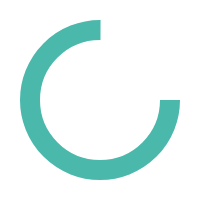ASAM XIL
ASAM XIL
DATASHEET
- Test automation using "in-the loop" systems:
- HIL (hardware-in-the-loop)
- SIL (software-in-the-loop)
- MIL (model-in-the-loop)
- Programmers Guide
- Generic UML model
- Technology references for C# incl. examples and test suite
- Technology references for Python
- XML schemata
- Standard Assemblies
- xml
- sti
- stz
DOWNLOADS
VIEW ONLINE
(Free of charge)
ASAM XIL is an API standard enabling communication between test automation tools and test benches. It supports all stages of development and testing, including model-in-the-loop (MIL), software-in-the-loop (SIL), and hardware-in-the-loop (HIL). The standard decouples test cases from real and virtual test systems, enabling easy transfer and reuse of tests across different systems with minimal migration. This simplifies know-how transfer between test benches and reduces training costs for engineers.
ASAM XIL-based automation is applied across all automotive E/E domains, including drivetrain, steering, and lighting. Its two key components are the Framework and the Testbench.
An interface reference in HTML format is provided based on the C# Technology reference. This offers a compact description of methods and properties of all interfaces, containing corresponding semantic definitions with pre- and post-conditions.
Framework
The Framework provides functionality for data measuring and mapping that is independent of the test bench hardware and software. The mapping process decouples the framework, which uses abstract identifiers, from the test bench, which employs concrete identifiers.
Variables are accessed through an abstract, vendor-independent mechanism designed for data from Model Access (MA), Electronic Control Units (ECUs), and network ports. The framework ensures that physical values are represented with their corresponding units and performs quantity calculations involving datatype and unit conversions. Measurement processes include synchronized data acquisition across multiple test bench ports. Watchers are used to monitor and manage user-specific parts of the data flow, while data is recorded in ASAM MDF (Measurement Data Format). Signal stimulation is achieved by replaying signals from predefined signal descriptions.
Testbench
The Testbench facilitates port-based communication with the simulation model, ECU, electrical subsystem, ECU network as well as SOME/IP integration and system testing.
Model Access (MA) Port
The MA Port allows retrieving metadata, reading and writing simulation model variables, capturing data, and executing scripts. It supports stepwise simulation control and capturing processes with ASAM MDF format integration. Version 3.0.0 introduces event-triggered variable updates.
ECU Access (ECU) Port
New in version 3.0.0, the ECU Port supports metadata retrieval, offline and online calibration, variable read/write, memory management, and recording ECU variables. It enables synchronized data capture across multiple devices and writes calibration files like ASAM CDF.
Diagnostic Access (Diag) Port
The Diag Port provides fault memory management, access to variant coding, HEX service transmission, and execution of diagnostic jobs. It supports functional group-based diagnostics.
Electrical Error Simulation (EES) Port
The EES Port allows executing electrical error sequences, creating and customizing error configurations, and switching between error sets using triggers.
Network Access (Network) Port
The Network Port supports reading and writing CAN frames. Captured bus frames can be replayed for debugging.
Service-Oriented Access (SOC) Port
Introduced in version 3.0.0, the SOC Port supports service testing, event subscription, simulation control, and SOC data capture. It enables message filtering and data storage in ASAM MDF format.
Backward compatibility
ASAM XIL 3.0.0 is a major release and not backward compatible to previous versions. The breaking changes are listed in an appendix of the ASAM XIL Specification.
Standard Authors
AUDI AG, AVL LIST GmbH, Berner & Mattner Systemtechnik GmbH, BMW AG, Continental Automotive GmbH , D2T, Daimler AG, dSPACE GmbH, embeddeers GmbH, ETAS GmbH, HORIBA Automotive Test Systems GmbH, iSyst GmbH, M&K Mess- und Kommunikationstechnik GmbH, MBtech Group GmbH & Co. KGaA, MicroNova AG, National Instrument Corporation, RA-Consulting GmbH, Robert Bosch GmbH, Softing Automotive Electronics GmbH, TraceTronic GmbH, Vector Informatik GmbH.

